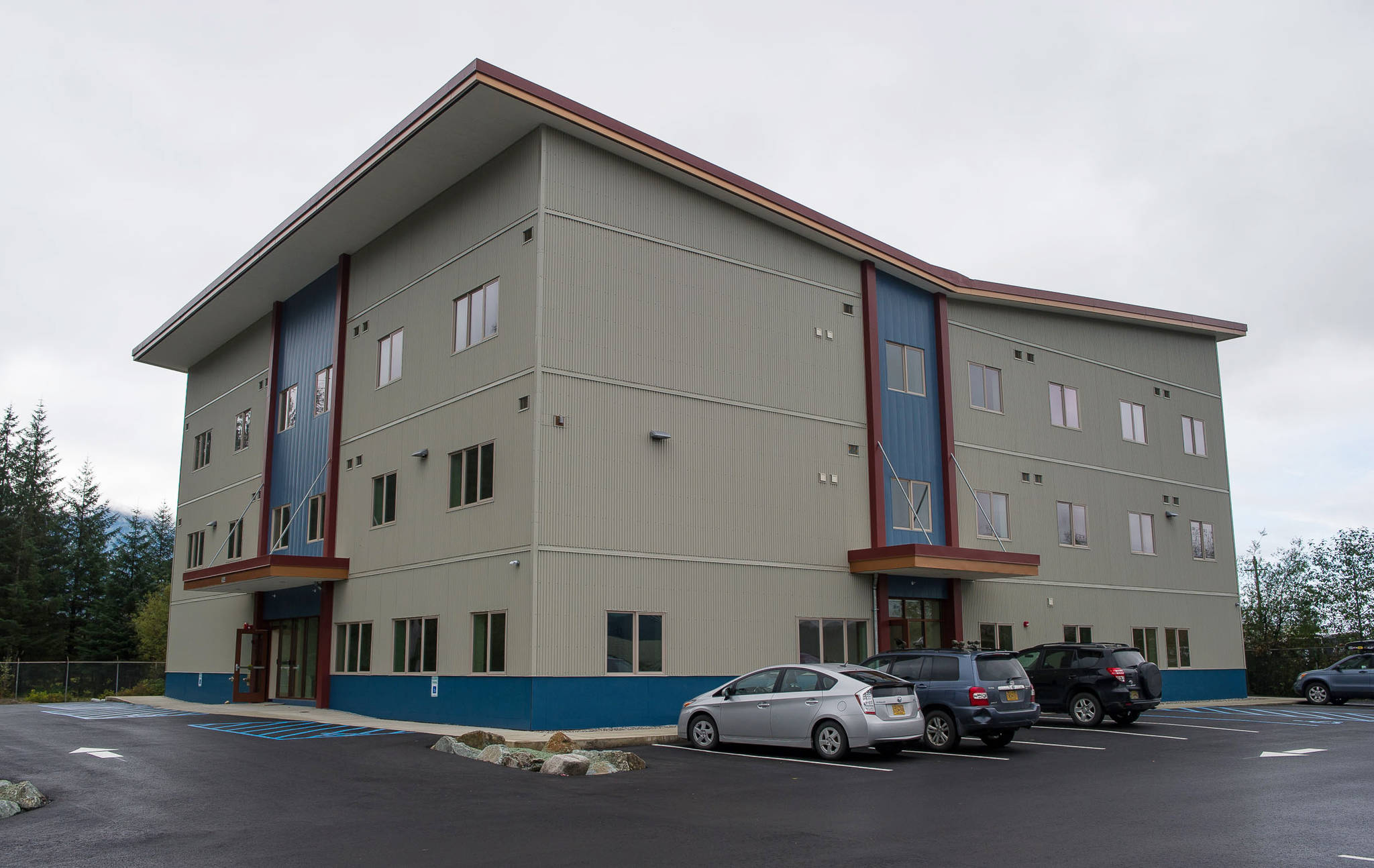New data released Monday show the six-month-old Housing First facility in Juneau is already making a positive impact on Juneau’s most vulnerable homeless population while lowering usage of the city’s emergency responders.
The University of Alaska Fairbanks has been collecting data on the facility — a 32-unit building in Lemon Creek geared toward housing homeless alcoholics and inebriates — as part of a three-year agreement between UAF and Housing First.
Data show a drastic decrease in the number of police calls, fire department calls, usage of the Rainforest Recovery Center, and times going to the Bartlett Regional Hospital emergency room for tenants in the supportive housing facility, compared to six months ago before they moved in.
“Being able to look at the data was very exciting,” Housing First Program Director Dacia Davis said. “I had hopes and this was better than I thought it would be. I think what really impressed me was the was the drop in utilization of Rainforest.”
The overall numbers, collected from the departments and given to an UAF investigative team showed that the Rainforest Recovery Center went from 344 visits during the six months before tenants moved into Housing First, to two visits in the six months afterward.
Visits to the ER dropped from 360 to 126, contact with Juneau Police Department for any reason went down from 604 to 168 and transport by Capital City Fire/Rescue fell from 137 to 63.
Davis added that because these services are getting used less, it saves the city money and does not put a strain on these resources.
“I think it is great for the community,” Davis said. “Housing is a human right and we are housing people while also allowing more resources to not be used the way they were previously. We are saving police officers’ time, which is invaluable.”
The average number of days tenants consumed alcohol did not differ much, but that was anticipated based on prior studies on similar facilities.
Heidi Brocious, one of the principal investigators at UAF on the project, said they released the first results quickly because they wanted to let the public know if there were any early impacts with the program. The three-year data collection project is being funded by an $18,000 grant from the Alaska Mental Health Trust Authority.
Brocious said the investigators received permission to speak with Housing First residents on everything from the housing to safety and personal feelings about their lives.
In every category about the tenants housing, the numbers were positive. Tenants felt their housing, sleep and life, in general, had gotten better in the six months after being at Housing First.
The data collected also dealt with the tenants’ past experiences in life. Ninety-percent said they lived with someone who abused a controlled substance, 80 percent said where they lived they did not have enough to eat, had to wear dirty clothes or was not safe, and 60 percent said they have been physically mistreated.
The data showed one category listed wasn’t so positive, in terms of impact of the housing facility. In the question that asked residents how many days in the last 30 did they have suicidal thoughts, the number increased from 1.5 to 3.6 days.
Mariya Lovishchuk, the executive director of the Glory Hole homeless shelter which helps staff Housing First, said that number reflects the isolation people may feel when going from the streets to a room. She also said when people are just trying to survive, they may be less likely to face inner feelings.
“People reported feeling sadder and more isolated,” Lovishchuk said. “I think part of it is psychological. When you aren’t on the streets, the body stops trying to fight to survive. But then, you are fighting those inner feelings because you don’t have any other distractions. We definitely need to address this.”
Davis said the challenges of change could have also played a role in the increase in suicidal thoughts.
“I think it is hard to speculate, but I think moving into a different environment is a big challenge for anyone, myself included,” Davis said.
Homelessness continues to be an issue in Juneau. In May, City and Borough Chief Housing Officer Scott Ciambor gave the Assembly an overview of an increase in homelessness in May. Ciambor reported a total of 235 people were accounted for in unshelter, emergency shelter or transitional housing. This number is an increase from 2016 (211) and 2017 (215).
Lovishchuk said the early results show that the program is working to help the homelessness.
“I think this shows that there is a better way to deal with chronic homelessness,” Lovishchuk said.
• Contact reporter Gregory Philson at gphilson@juneauempire.com or call at 523-2265. Follow him on Twitter at @GTPhilson.

